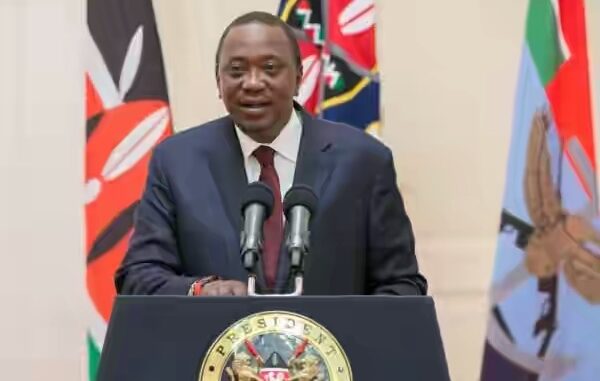
As disputes raged over the presidential results from Kenya’s election last week, a little-noticed democratic revolution blossomed in the layer of government directly underneath.
Kenyans sent home 25 out of 47 county governors, upholding a strong anti-incumbency tradition and warning that voters would turf out failing local leaders after power and money devolved to the counties in the last election cycle.
Anti-corruption campaigners – and voters – hope the new taste of direct accountability will eventually help curb corruption in East Africa’s biggest economy and weaken the grip of parties that rely on ethnic voting blocs.
“Party doesn’t matter. We want performers,” said Ann Wairimu, 48, a real estate agent in Nairobi, where dirty water and open sewers caused a recent cholera outbreak.
Voters threw out Nairobi’s governor, Evans Kidero, for failing to deliver public services. His replacement, Mike Sonko, is famed for his flamboyant fashion and high profile social projects. When not sporting a sequined hat, he is often photographed leading teams shovelling piles of rubbish from the streets.
“Kidero sat in his office and did not deliver anything to the common man,” Wairimu said. “Sonko actually goes to those poor communities and concerns himself with things like sewage systems and garbage collection.”
From independence from Britain in 1963 until the 2013 elections, Kenya’s budget and social services were managed – and mismanaged – by the president and a small coterie of ministers.
An incumbent president never lost an election, and three out of four presidents have come from the Kikuyu ethnic group, fuelling resentment and ethnically based politics.
Years of one-party rule followed by a series of flawed elections led voters to despair that they were helpless to combat corruption.
Then a 2010 constitution devolved around 20 percent of the budget to 47 new counties, also handing them responsibility for basic healthcare, early education, local roads, and other infrastructure.
Suddenly taxpayers lived next to the people who were spending – or stealing – their money. Since then, a couple of local politicians have had their houses or cars set alight by angry voters; one was photographed by a newspaper escaping pursuers by jumping over a fence. But most were punished at the polls.
As well as most governors, two-thirds of local legislators were voted out, many after spurious taxpayer-funded jaunts to Singapore and Dubai and dodgy procurement deals.
“Many politicians don’t do their jobs properly so there’s continual frustration,” said Murithi Mutiga, the senior Kenya analyst for International Crisis Group. “But now at least people know they can have some say in how their resources are managed.”
Aware of growing voter frustration, at least three governors have declined government funds for a lavish inauguration.
DEFUSING PRESIDENTIAL TENSIONS
Devolution also helped defuse anger over the disputed presidential election. Opposition leader Raila Odinga will challenge the results in court after the electoral board said President Uhuru Kenyatta won by 1.4 million votes.
The winner-take-all element to presidential contests was a key part of the violence that followed a flawed election in 2007, killing more than 1,200 people, anti-corruption campaigner John Githongo said.
Before the new constitution, the winner controlled Kenya’s entire budget – 2.6 trillion shillings ($25 billion) this year. Now that the counties get a cut, at the very least money is being stolen by a much wider range of people, said Githongo.
“Before, it was just the central government. That has changed … more can ‘eat’ under devolution,” he said, using Kenya’s common euphemism for corruption.
It’s not just about spreading wealth. Some governors were re-elected by a landslide after they worked to provide services.
In Makueni county, Harvard-educated Governor Kivutha Kibwana won 88 percent of the vote after trying to crack down on corruption in the county assembly; legislators had demanded he undertake a mental exam.
In the coastal county of Kwale, an Odinga stronghold, Governor Salim Mvurya was re-elected with 65 percent of the vote despite jumping from the opposition to the ruling party. Voters praised his investment in clinics, water projects and roads and said they voted on achievement, not party or ethnicity.
“I gave birth to my first born son in the house in 2008 because I could not walk the long distance to the main hospital in Kwale town. Now I can scream from my house and a nurse at the new dispensary can hear and run to my rescue,” said Hamza Said, a 32-year-old mother of three, who had her daughter in a new clinic last year.
Several voters told Reuters that even though their presidential candidate appeared to have lost, they were satisfied because they got the governor they wanted.
“I voted for Raila and it pains me that he lost, but for the governor, I had no doubt who I wanted. It had to be Mvurya,” Mohammed Issa, 25, who runs a grocery in Kwale town, told Reuters. “That man has lit up this county.”
Source – Reuters